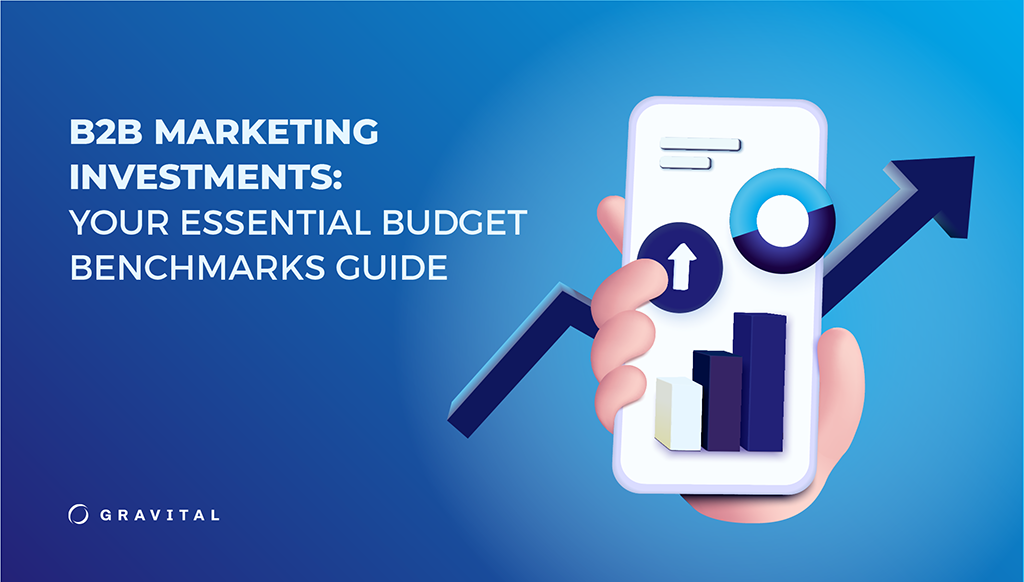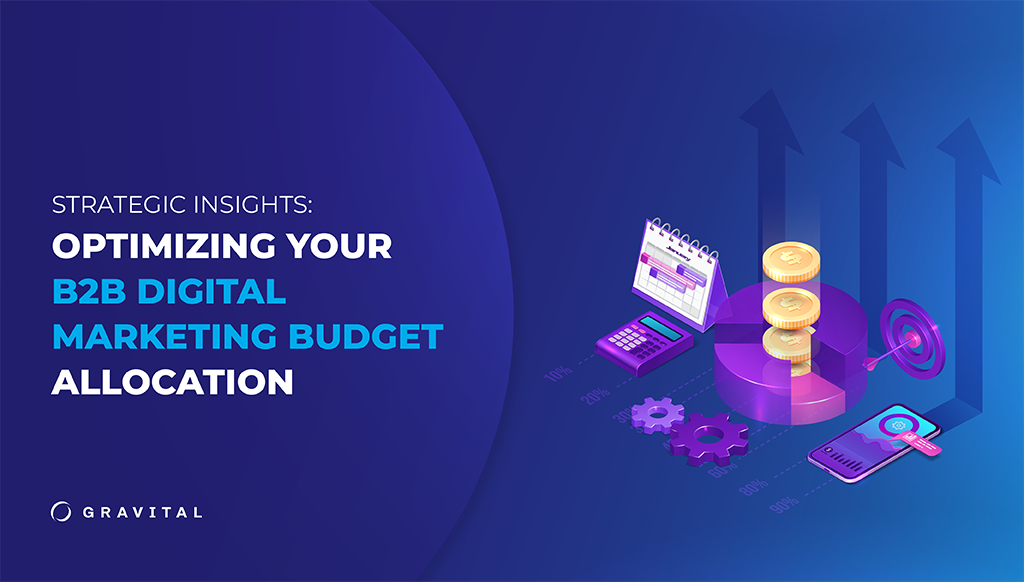Budgets are no fun, but they are necessary. So buckle up!
To have an effective marketing strategy, you need an effective marketing budget. How you allocate that budget can make all the difference.
In this blog post, we’ll cover some fundamental concepts about marketing budgets and share several allocation strategies.
What Is a Marketing Budget?
A marketing budget is an estimate or outline of the financial resources a company will spend to market its products and/or services. It encompasses all activities related to promotions, advertising, public relations and branding. Marketing budgets cover a finite period of time: a month, a quarter or a year.
ALSO READ: 9 DIGITAL MARKETING BUDGET MISTAKES AND HOW TO AVOID THEM
The marketing budget typically makes up between 5% to 25% of a company’s total budget, depending on the nature of the product/service, industry and target market. B2B companies tend to allocate a higher percentage of their budget to marketing than B2C companies.
Why Is a Marketing Budget Important?
Marketing budgets are an essential tool for organizations to successfully plan, execute and measure their marketing activities, ensuring that they are able to achieve results in a cost-effective manner.
- Set priorities: A marketing budget helps organizations to set priorities for their marketing strategies and that they focus on the most important strategies and tactics.
- Allocate resources: The budget allows companies to make sure they have enough funds to support their marketing activities.
- Measure ROI: It helps brands measure their marketing ROI to determine the effectiveness of their efforts.
- Plan and forecast: The budget also provide a framework for planning and forecasting marketing activities, allowing organizations to develop a strategic roadmap for achieving their marketing goals.
- Improve decision-making: By having a marketing budget in place, companies can make better-informed decisions about where to invest their marketing resources, which helps them optimize their marketing efforts and maximize their impact.webinars
What’s Included in a Marketing Budget?
A typical marketing budget can be divided into categories such as:
- Digital marketing
- Content marketing
- Advertising
- Market research
- Public relations
- Sales promotions
- Branding
- In-house marketing employee’s salaries
- Vendors/consultants
- Software/tools
- Events/trade-show costs
- Training/conferences
The categories vary depending on the type of business, products and services, as well as the company’s business and marketing goals.


1. Define Your Marketing Goals
Before allocating any resources, you should establish your marketing goals. This helps you decide which areas of marketing require more investment and which require less. Start by setting SMART goals (specific, measurable, achievable, relevant, and time-based).
2. Outline your Marketing Plan
Creating a marketing plan will determine what you need to do to achieve your goals. Use data to develop your plan.
The marketing plan should outline activities and expenses to allocate your marketing budget. Consider the following marketing tactics and channels:
- Search engine optimization (SEO)
- Website development and design
- Advertising and search engine marketing (SEM)
- Email marketing
- Social media
- Video marketing
- Influencer marketing
- Public relations
- Any other relevant tactic or channel
3. Prioritize Channels and Tactics Based on Your Target Audience
You need to understand your target audience and determine what methods are more likely to engage potential buyers. This will help you to decide which channels and tactics to invest in first.
4. Take Seasonality Into Consideration
Many industries experience fluctuations in demand based on seasonality. For example, retail companies usually experience higher sales during the holiday season. When developing your marketing budget, consider the impact of seasonality and allocate resources accordingly.
5. Leverage the Power of Digital Marketing
Digital marketing channels, such as social media and email marketing, are highly effective at reaching and engaging audiences. They also offer a high level of flexibility and can be scaled up or down depending on the results you achieve.
6. Consider the Impact of Brand Awareness
Building brand awareness is a critical component of marketing, and it requires investment. While it may not produce immediate results, investing in branding can help to drive long-term growth and loyalty.
7. Measure Results and Refine Your Strategy
Once you’ve launched your marketing campaigns, it’s essential to track and analyze results. This will help you to refine your strategy and optimize your marketing budget.
Final Word
The success of your company’s marketing plan depends on the competent allocation of your marketing budget. By following the strategies listed above, you can optimize your marketing budget allocation and achieve better outcomes.
In Gravital Agency we have specialists ready to help you with guidance of what you need to prioritize for your budget. Contact us with this form or call us 787-424-4443, we will glad to be your partner!


